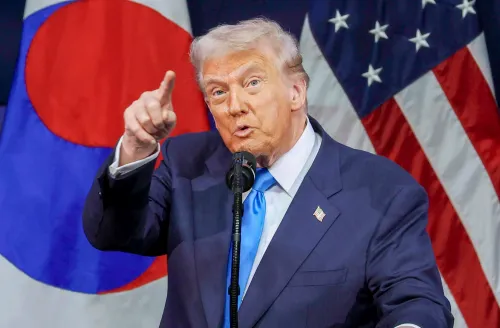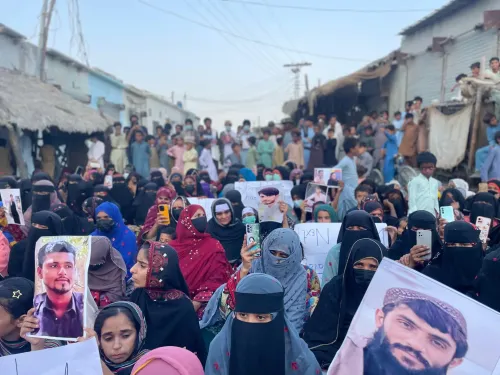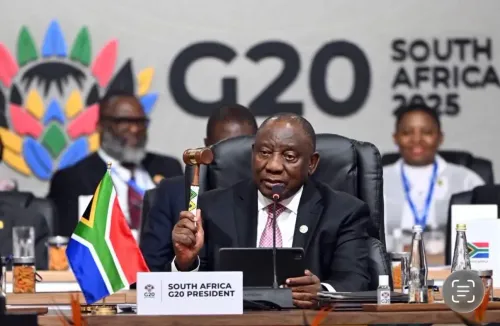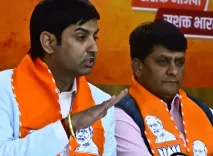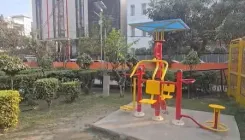Is Kim Gaining Ground on Lee in the South Korean Election Race?
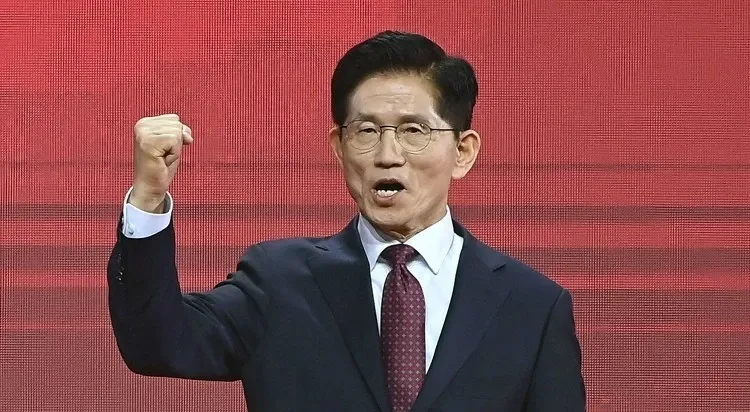
Synopsis
Key Takeaways
- Lee Jae-myung holds a lead, but Kim Moon-soo is narrowing the gap.
- The NRP's Lee Jun-seok has gained 10% support for the first time.
- Kim proposes political reforms including reducing lawmakers and appointing a special inspector.
- Lee pledges to abolish the statute of limitations on state violence crimes.
- Both candidates are addressing critical issues affecting South Korea.
Seoul, May 22 (NationPress) The Democratic Party (DP) candidate Lee Jae-myung maintained a significant edge over the People Power Party (PPP) candidate Kim Moon-soo, but recent polling indicates that Kim is narrowing the gap, as revealed in a survey published on Thursday, marking the midpoint of the election campaign.
A National Barometer Survey conducted this week indicated that Lee holds a 46 percent support rate compared to Kim's 32 percent. Lee Jun-seok from the minor New Reform Party (NRP) trailed in third place with 10 percent. This marks the first occasion that the NRP's Lee has achieved a 10 percent support rate.
In comparison to last week, Lee's support from the DP decreased by 3 percentage points, while Kim and the NRP's Lee saw increases of 5 and 3 percentage points, respectively.
In his efforts to challenge the DP's Lee, Kim has urged the NRP's Lee to consider merging their campaigns, although the latter, a former leader of the PPP, has stated he has no intention of collaborating with Kim.
Feeling optimistic after the latest poll results, the NRP's Lee expressed on Thursday that inquiries from reporters regarding a potential merger with Kim would be "meaningless."
Lee of the DP kicked off his election tour on the southern island of Jeju, where he vowed to eliminate the statute of limitations for state violence offenses.
This island carries a painful history from the Jeju April 3 uprising, during which an estimated 14,000 to 30,000 individuals—up to 10 percent of the island's population at the time—lost their lives in a series of violent crackdowns, according to the Yonhap news agency.
"For crimes where the government misuses the power granted by the people to infringe upon their lives, freedoms, and human rights, I will permanently abolish the statute of limitations, ensuring that perpetrators can face criminal consequences as long as they are alive," Lee stated.
Although the DP passed related legislation last December, it was vetoed by the acting South Korean President Choi Sang-mok in January. Lee emphasized that his party will reintroduce the bill, committing to signing it into law if elected.
In Seoul, Kim unveiled a vision for extensive political reform, proposing a 10 percent reduction in the number of lawmakers and the appointment of a special inspector, recommended by the opposition, to investigate allegations regarding the president's family and close associates.
At the Korea Exchange, Kim shared plans to enhance the country's stock market, which include tax incentives for long-term investors and initiatives to secure South Korea's inclusion in the Morgan Stanley Capital International (MSCI) Developed Market Index during his potential term.
In a separate meeting with leaders from five major business lobbying groups, Kim discussed his intention to create a senior presidential aide position focused on corporate affairs to foster a business-friendly environment.
He also plans to meet with representatives from the Korean Medical Association to address ongoing medical reform disputes and is expected to finalize a policy agreement with a prominent women's organization.
Later that day, Kim will campaign in Gangmyeong and Bucheon in Gyeonggi Province, situated just west of Seoul. He previously served as a three-term lawmaker for Bucheon from 1996 to 2006 before becoming the governor of Gyeonggi Province.


